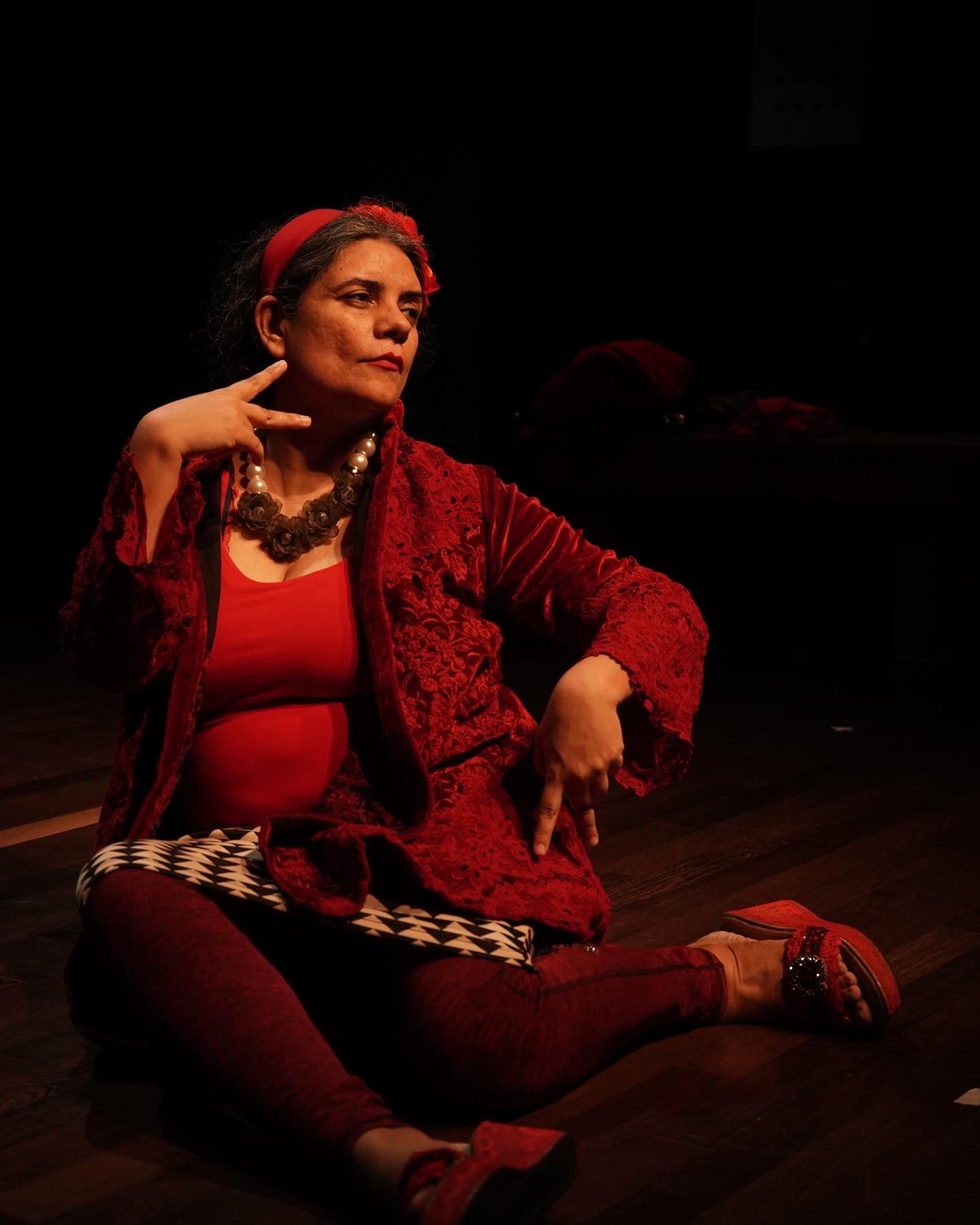One-woman play ‘Maas’ exposes uncomfortable truths
Jyoti Dogra wears many hats on stage.
This coat of shame we all wear has plenty of lovely detailing; each time someone tells us what’s wrong with our body another stitch is sown into it. But most of the embroidery we add ourselves tack by tack, with the needle of criticism.
This dichotomy of thought, where a body is precious and ours and yet the accepted object of another’s ridicule, where we internalize thoughts of shame rather than pride, and toxify our relationship with our bodies, this is the subject matter the one-woman show Maas .
Spoken nasally, ‘maas’ in Hindi means flesh and it means meat. “The piece is moving between this body which is very, very personal to me and this body which is an object,” says Jyoti Dogra, the one-woman arsenal bringing the play to The Junction on October 14 and 15.
In the play, written by Dogra, she plays a multitude of characters. “Jyoti Dogra is a character in the show and I’m inspecting my own body. So, I become the aunty or the mean friend, or whatever or the social media influencer who is saying, ‘Listen, you have so much fat on your waist and you need to reduce it’ and this is not right and that is not right. So I am that person and I am also the body that’s suffering. So, the piece is centered around my body…and all that is wrong about it and all that can be fixed about it and all that this woman doesn’t want to fix.”
Originally, however, this was not what she wanted to write about. “When I started, I wanted to make a piece on fat.” But as she worked she realised that there were there a number of industries touting ‘fitness’ and ‘thin-ness’ in the name of health. But what they are really selling is an unhealthy look. A look that says, ‘you can’t really be your age’. She wanted to write about these industries – the fitness, fashion, cosmetic trillion dollar industries – that control the narrative. Until she had an epiphany.
“As a 50-year-old woman from Bombay [Mumbai], it’s not like someone from [a gym] or a dietician is coming up to me and saying, ‘You are fat, you need to lose weight’. Nobody needs to tell me, I’m constantly thinking about it myself. I am my own oppressor. ”
“As a 50-year-old woman from Bombay [Mumbai], it’s not like someone from [a gym] or a dietician is coming up to me and saying, ‘You are fat, you need to lose weight’. Nobody needs to tell me, I’m constantly thinking about it myself. I am my own oppressor. And that’s when I realised that all this social media, all of this stuff is all internalised patriarchy.” And internalised policing. And internalised misogyny.
“And when we say this, the people sitting in the audience laugh, because they know this, they do it to themselves. The kind of violence we do to ourselves… is funny. The shame is constantly there. Shame is the biggest violence. But it’s considered normal,” she adds.
In Maas, Dogra takes on uncomfortable truths such as chin hair and flatulence and in doing so, she unspools the overcoat of shame, strand by strand.
At the end of the show, one must wonder if it’s time to do the same with their own transparent, heavy garment. It’s what she’s going for. “The show encourages you to look at and explore your relationship with your body, which is extremely intimate and private – and I feel that’s where the play is. It’s not so much on stage as it is in your personal dialogue with your own body sitting in the dark in the audience.”
The details
Tickets to see Maas, which runs at The Junction on October 14 and 15, cost Dh100 and can be bought on Fever.

